Assembly Day

The annual SFI Assembly Day is the day on which the church commemorates St. Philaret of Moscow. It is an opportunity for anyone who works, teaches, studies or has studied at St. Philaret’s Institute – for those who support the Institute with prayers, intellectual efforts or financial aid – to sum up the accomplishments of the past year and to share in the joy of having the chance to serve our church through the gift of spiritual education.
This year, the Institute received blessings and greetings from both Metropolitan Mercurius of Rostov and Novocherkassk, Head of the Synodal Department for Religious Education and Catechesis of the Russian Orthodox Church, and Metropolitan Hilarion of Volokolamsk, the Rector of Ss Cyril and Methodius Theological Institute of Post-Graduate Studies – at which for several years SFI alumni have continued their education.
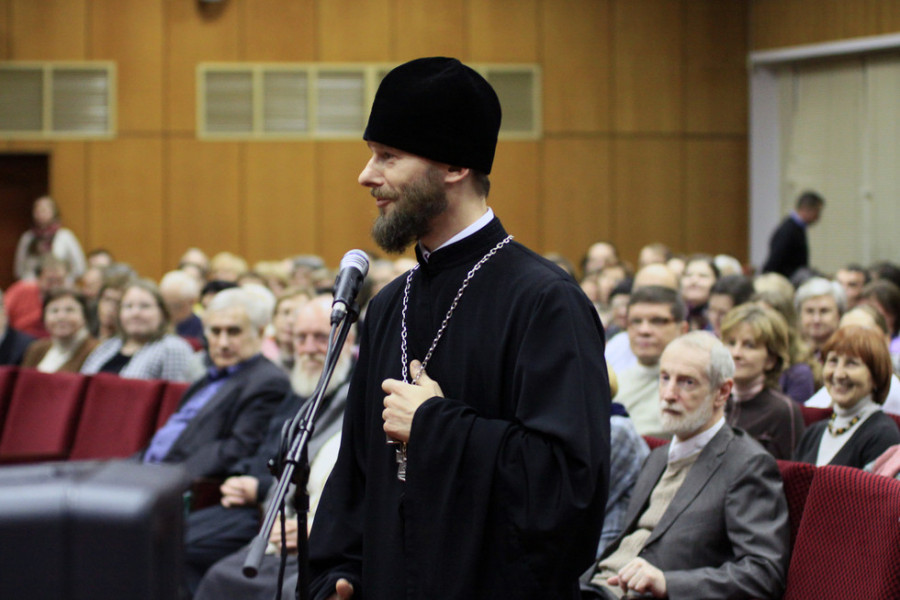
Metropolitan Mercurius of Rostov and Novocherkassk, Chairman of the Department for Religious Education and Catechesis (DREC) of the Russian Orthodox Church, sent his blessing and greetings through Monk Gennady (Voytyshko), who heads the DREC Information and Analytics Service.
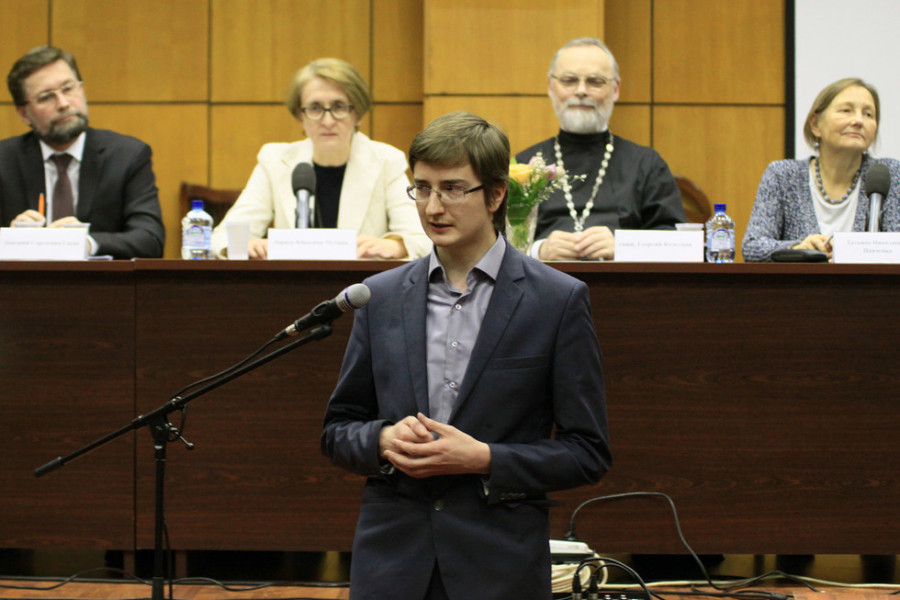
Metropolitan Hilarion of Volokolamsk, Rector of Ss Cyril and Methodius Theological Institute of Post-Graduate Studies, sent his blessing and greetings through the Executive Secretary of the school’s M. A. programmes, Andrey Gusev
The Institute also received greetings from Archimandrite Sergius (Akimov), the Rector of the Minsk Theological Academy, from Dmitry Shmonin, Provost of the Russian Christian Academy for the Humanities, and from Anatoly Krasikov, a member of SFI’s Board of Trustees. Professor Deacon Vasily (Karl Christian) Felmy, who was present at the Assembly Day, also expressed his greetings on behalf of the Board of Trustees.
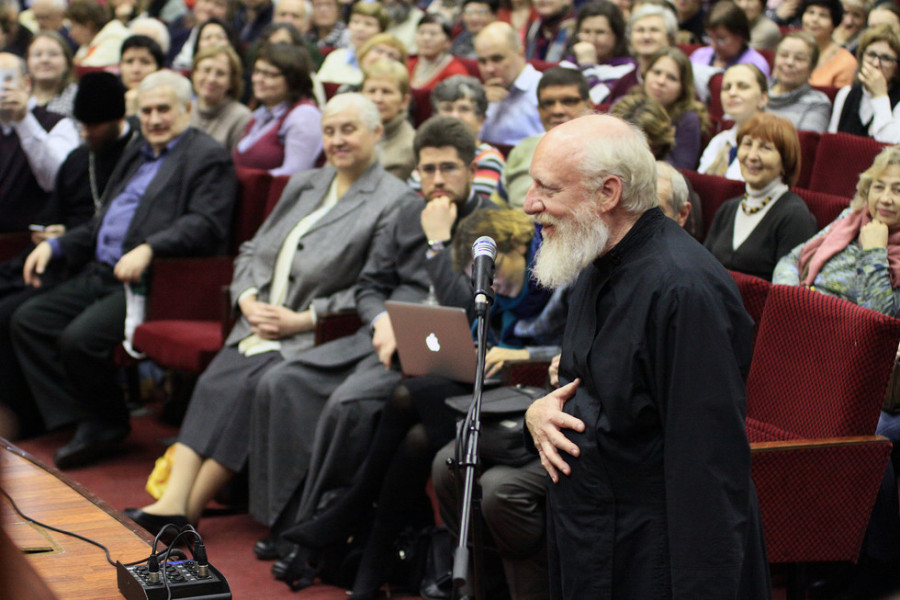
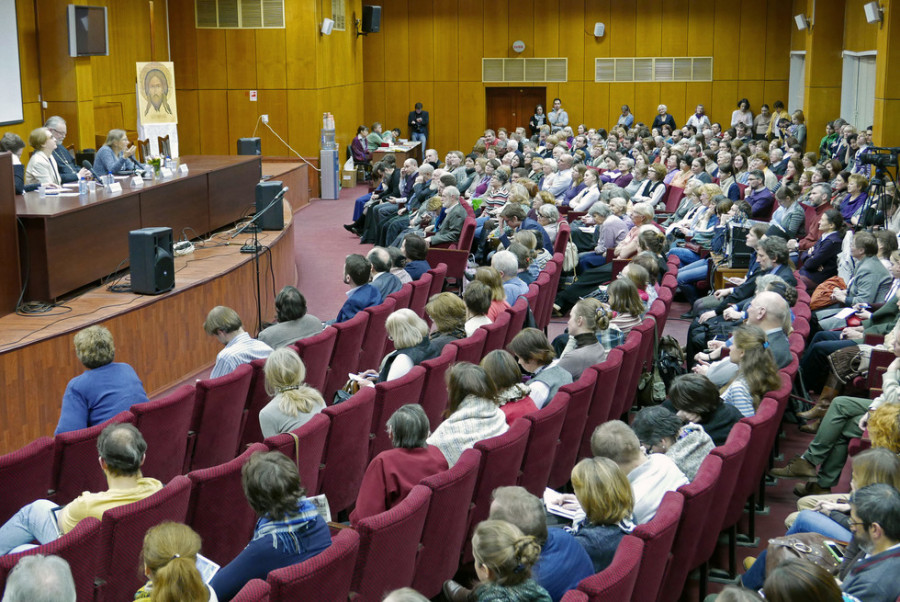
In summing up the year’s achievements, SFI Provost, Dmitry Gasak, remembered first our celebration of the Transfiguration Brotherhood’s 25th anniversary. In fact, the Brotherhood founded the Institute; without its support, none of SFI’s activities would ever have been possible. Gasak remarked that many in the church perceived that the celebration of liturgy at Christ the Saviour Cathedral on the Feast of the Transfiguration was a milestone. With the blessing of his Holiness Patriarch Kirill, the liturgy was led by Bishop Panteleimon of Orekhovo-Zuyevo and concelebrated by other priests, with SFI Rector Fr Georgy Kochetkov delivering a sermon. The festival that continued the celebrations on that day was also a milestone for us.
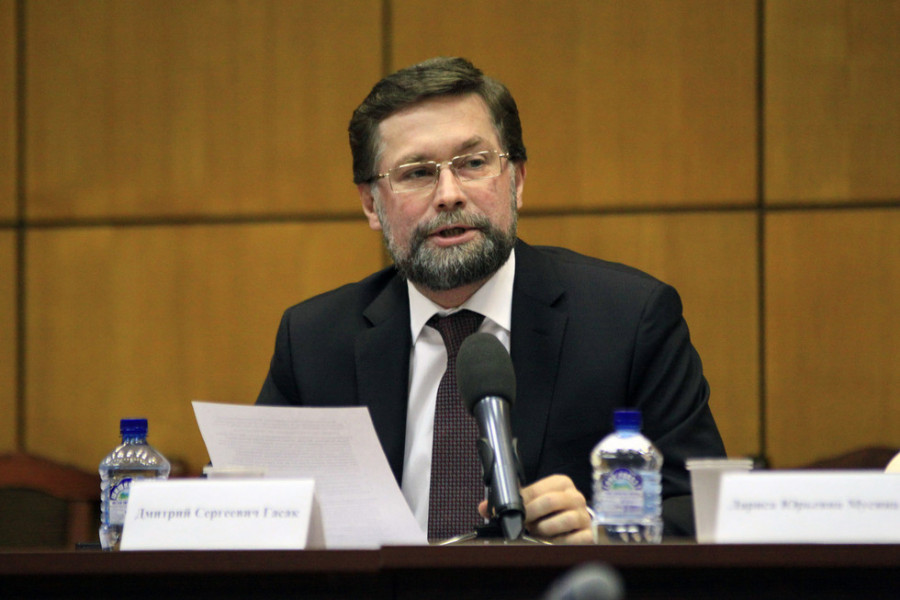
“I would like to thank all our brothers and sisters for supporting the Institute not only as the theological, intellectual and cultural centre of the Brotherhood, but also in its contribution toward higher education for the whole of the Russian Orthodox Church,” said Gasak.
As is traditional, the Provost summarised the accomplishments of the Institute’s educational, academic, cultural and social activities over the past year. He spoke of new courses and tutorials, changes to the teaching staff, and updates made to curricula and educational programmes. In particular, he noted the recently developed M.A. Programme on Contemporary Orthodox Theology and Catechetics, and the continued elaboration of the M.A. programmes in Church History and the Sociology of Religion.
The focus of academic research at SFI has been catechesis and related theological issues. Of particular interest is the fact that Fr Georgy Kochetkov – the Rector of the Institute – has recently completed his long-term work entitled Christian Personal and Interpersonal Anthropologies, the introduction to which he presented at the Assembly Day two years ago.
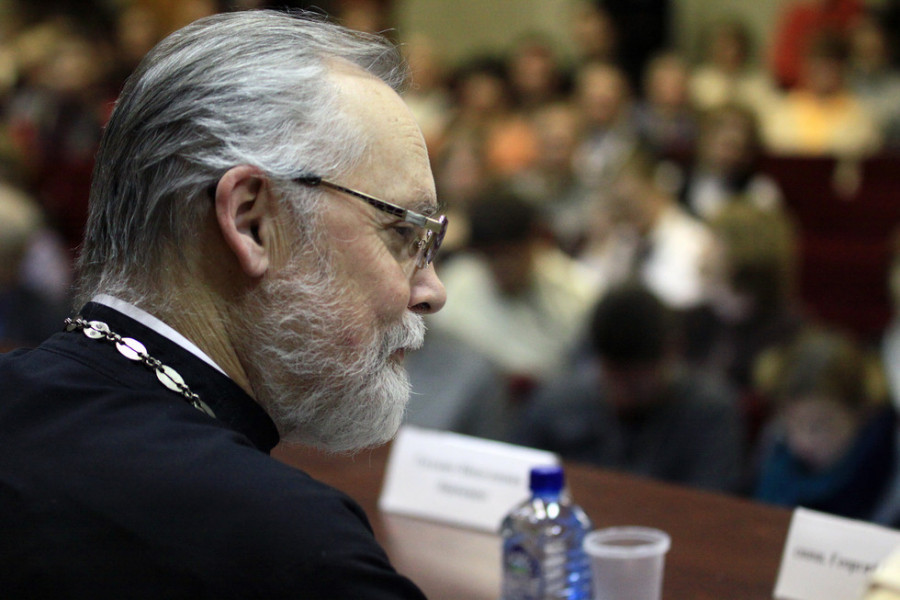
The Department of Missiology, Catechetics and Homiletics has begun regular webinars on the topic of catechesis. A new manual for catechists has been prepared for publication.
Conferences held by the institute over the last year include:
- The Institute’s regular annual conference on the tradition of patristic catechesis;
- The 21st annual “Meeting of the Lord Readings” for students and recent graduates;
- “The Contents and Methods of Overcoming the Most Common Distortions in Church Life”, a conference held in conjunction with the Theology department of Lucian Blaga University in Sibiu;
- “People Acting in Freedom: Unexpected Paths to Personal and Societal Revival”, a conference hosted jointly in conjunction with the Transfiguration Brotherhood;
- several conferences on the Sociology of Religion.
Research seminars at the Institute continued in the following topics:
- “Totalitarianism: an Attempt to Understand and Overcome it” (organised by the Department of Philosophy, Humanities and Natural Sciences);
- “Physics and Theology” (an interdepartmental undertaking).
The Institute also continues its work on issues relating to spiritual and humanities education.
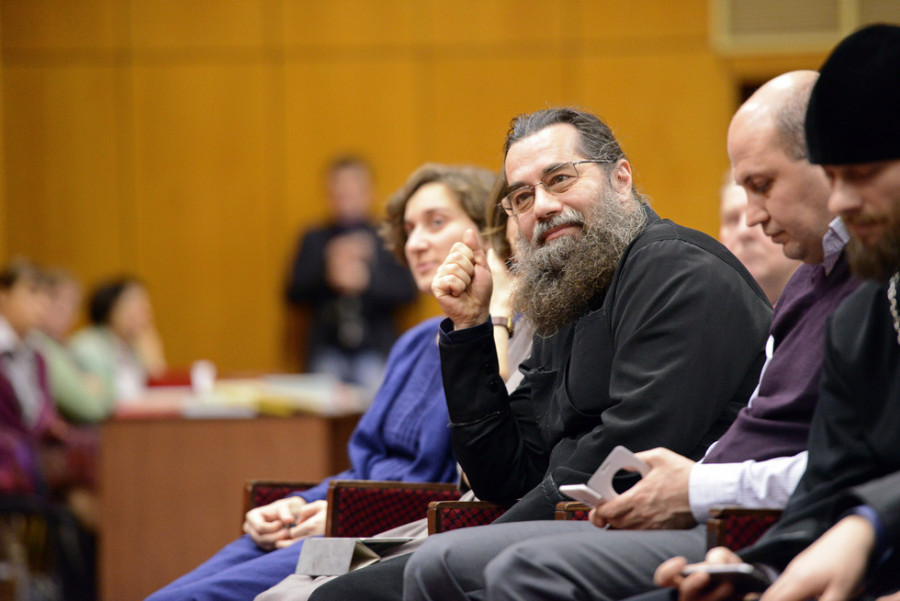
Over the past academic year, SFI teachers and students participated in more than 100 research conferences in Russia and abroad and published more than 200 works.
The topic of brotherhood movements in church history stands out among the themes treated by the Institute’s research and educational publications. It is of particular note that this was the key subject of a joint presentation by Fr Georgy and Yulia Balakshina at the celebration of the Transfiguration Brotherhood’s 25th anniversary. A film recently launched in Voronezh, about the history of the Alexander Nevsky Brotherhood, also represents a focus on this theme.
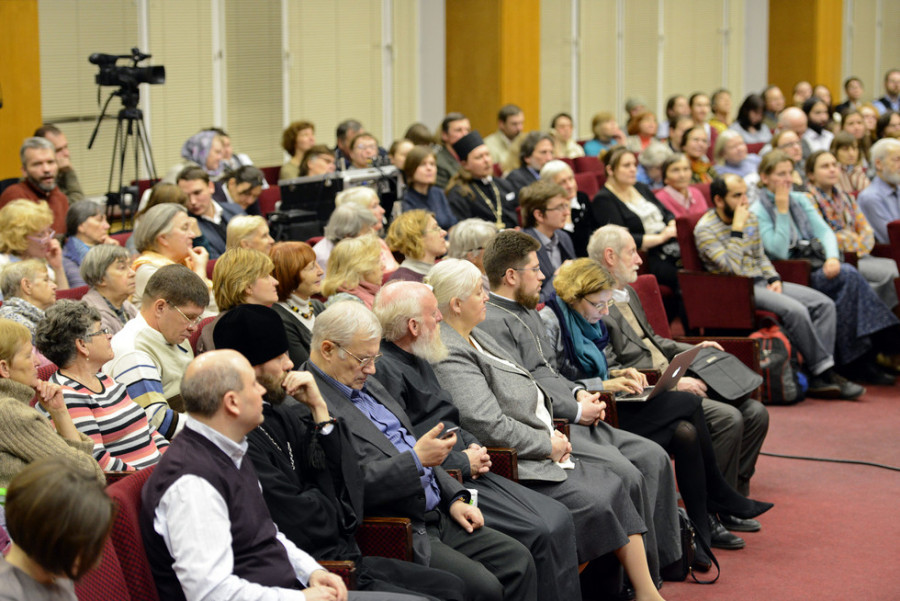
The Institute released a series of new teaching aids, including Essays on Christian-Muslim Relations (Alexey Zhuravsky), a textbook on Russian language and speech culture (Yana Pantuyeva), a textbook and reader entitled Church Architecture and Art (Professor Alexander Kopirovsky), an audio course entitled The History of Scientific Thought (Grigory Gutner) and a book entitled Christian Ethics and Axiology (David Gzgzyan). The Department of Philosophy, Humanities and Natural Sciences presented new textbooks on Philosophy: Ancient Thinkers (Grigory Gutner) and The Bases of Psychiatry (Boris Voskresensky). The SFI Quarterly, a joint staff and student publication, also continued its releases in 2015.
This past year, the School of Theology had 254 students. Our graduating class of 40 was the largest to date. At present, we are 215 theology students from 35 cities in Russia, Belarus, Moldova, Latvia and the United States. This year students volunteered in hospitals, hospices, orphanages and retirement homes in Moscow and other cities.
Our School of Religious Studies celebrated its 10th year of work this past year. Since its inception, the school has graduated 270 students from 36 cities in Russia, Ukraine, Moldova and Germany. Today we have 41 students. This year the School of Religious Studies launched an evening club called “Event exists”, which features lectures and video tours, joint reading and the discussion of religious texts.
Our Theology College also upgraded its programmes this year and enjoys increased enrolment, with a total of 260 students.
The administration and teaching staff of the Institute remain focused on achieving high standards for degree papers (theses). During this year, lecturers were able to attend regular methodological seminars on the supervision of theses. In addition, we developed and launched a course on academic writing.
Nine years ago, the SFI Student and Alumni Association was founded to support the Institute. During this last academic year, the Association organised several student workshops, whose participants presented their papers, archival findings and investigations.
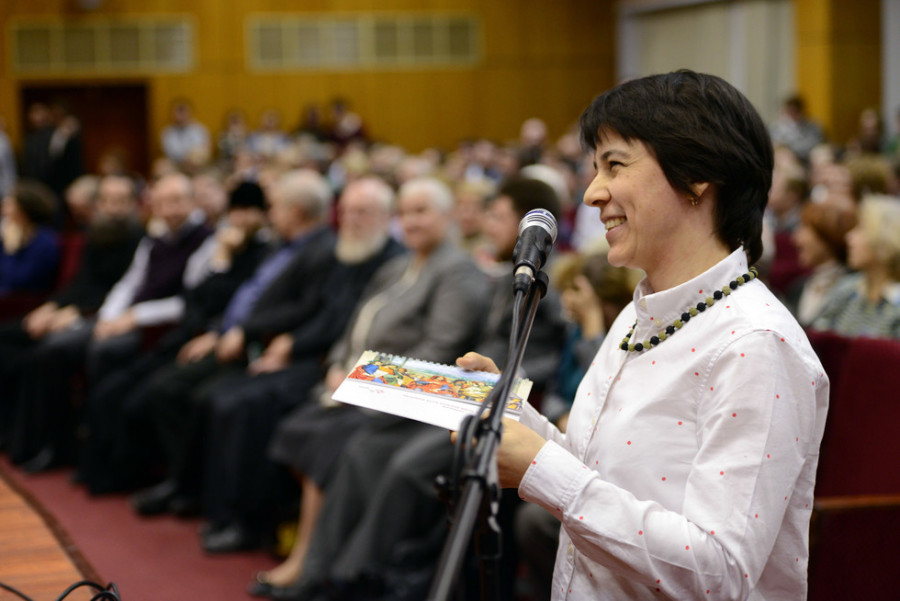
“To us the Institute is not just a place where one goes to get knowledge or broaden one’s mind – it’s a meeting place for God and man. We meet with each other and others who are fulfilling their Christian vocation – including those who lived in the past,” said Anna Safronova, an SFI graduate and Secretary of the SFI Student and Alumni Association. “When I was a student, a meeting with the Alexander Nevsky Brotherhood was one such occasion for me, personally. Their members also paid great attention to spiritual enlightenment. One of the students of their school – Elizabeth, the sister of Metropolitan John (Wendland) – said that for her the school was like the cradle of her faith, and that coming there felt like living in the heavenly abode. I think this could also be said with reference to our Institute”.
This year, members of the Association published and presented to the Institute’s administration a limited edition calendar with philosophers’ quotations about the human person. This gift marks the continuation of a series of themed calendars with sayings of saints, philosophers and theologians, which was begun last year by the Association.
The Institute continues to openly declare its public position on Russian history and aims to enhance the dialogue between church and society and to promote societal reconciliation and repentance for the crimes of the Soviet regime. This year the Memorial Prayers commemorating the victims of Soviet repression became a major focus of public attention. The Memorial Prayers were held on the 30th of October in Moscow and other cities and, as is traditional, were attended by SFI students, lecturers and staff. A series of open lectures on the 1917 coup d'état and World War I, delivered at the Institute by Petersburg historian Kirill Alexandrov, also aroused great interest.
Together with the Transfiguration Foundation for Culture and Education, the Institute took part in creating a portfolio of travelling church history exhibitions, presenting them in different cities. An exhibition entitled “Fr Pavel Adelheim: a Witness” was held in Voronezh. An exhibition on the 1922 campaign to seize church property, entitled “Non Licet Vos Esse. You Have No Right To Exist” was presented in Arkhangelsk, Severodvinsk, Istra, Yekaterinburg and Tomsk. Exhibits from the Archpriest Vitaly Borovoy Foundation, which are usually housed at SFI, were shown in Homel, at an exhibition in honour of the 100th anniversary of Fr Vitaly’s birth.
“The work of a school of higher theological education cannot be measured by objective performance criteria, which in recent years have become a sword of Damocles for many universities,” added Dmitry Gasak. “Having said that, our Institute has – I am happy to inform you – successfully passed the 2015 performance assessment. Education must not, however, turn into a structure which functions for its own benefit. It must always be the fruit of great labour, and of emotional, intellectual and spiritual effort. It is the fruit of faith. May God grant that each person who comes to teach, work or study at our Institute, live by this faith.”
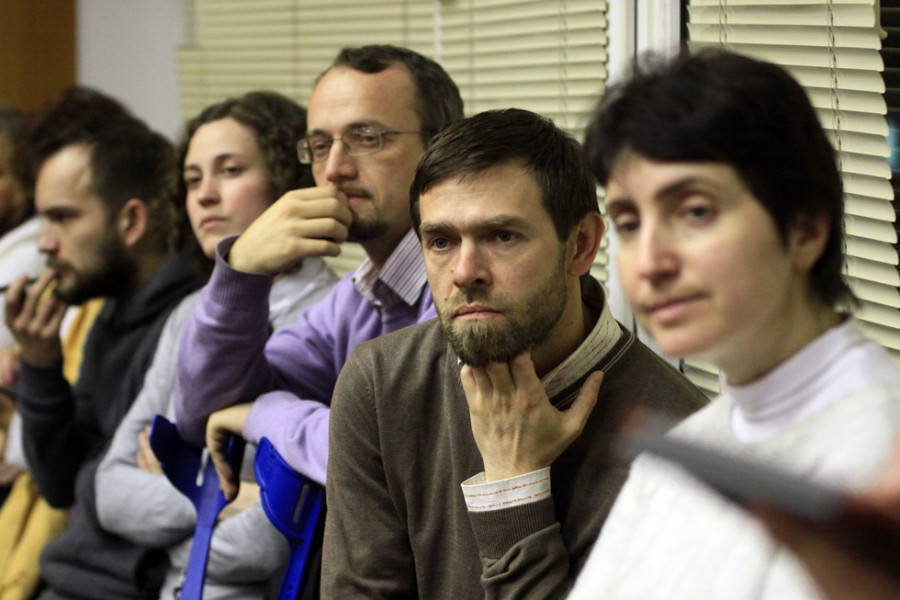
“It is not always easy to combine the desire to serve the meaning of our Institute’s existence with the necessity to meet the formal requirements and standards of the ever-changing legislative and regulatory framework,” said Larisa Musina, Head of SFI Academic Services and the Department of Holy Scripture and Biblical Studies, who moderated the day’s festive events. “We do not wish that our Institute’s work be reduced to mere professional training; we want to remember that education is associated with enlightenment and with the revelation of a person’s spiritual capacities. We thank God that our Institute endeavours to maintain this priority in its educational work and that there is room for this in our lives.”
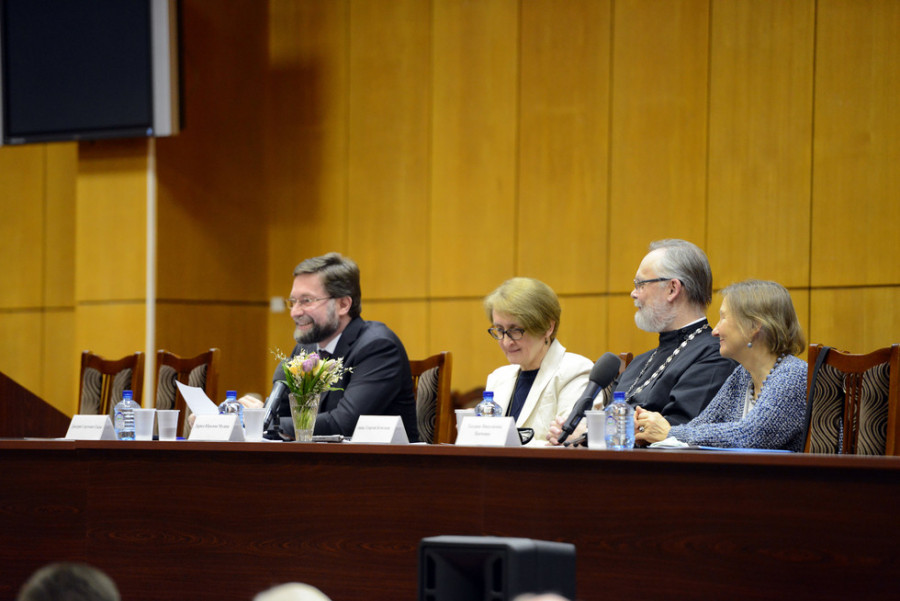
This year’s keynote address was delivered by Tatyana Panchenko, who holds a Ph.D. in Philosophy. As the topic of her speech she chose “Brotherhood and Friendship in the Ecclesial Economy: Reflections on Fr Pavel Florensky.” Panchenko noted that since the time of Aristotle, philosophers have treated the topic of friendship within the framework of ethics. Fr Pavel Florensky, however, discusses friendship in the penultimate chapter of his book, The Pillar and Ground of the Truth, and asks whether friendship and love are not so much ethical enterprises as ‘molecules’ of Christian community and acts which change human nature itself.
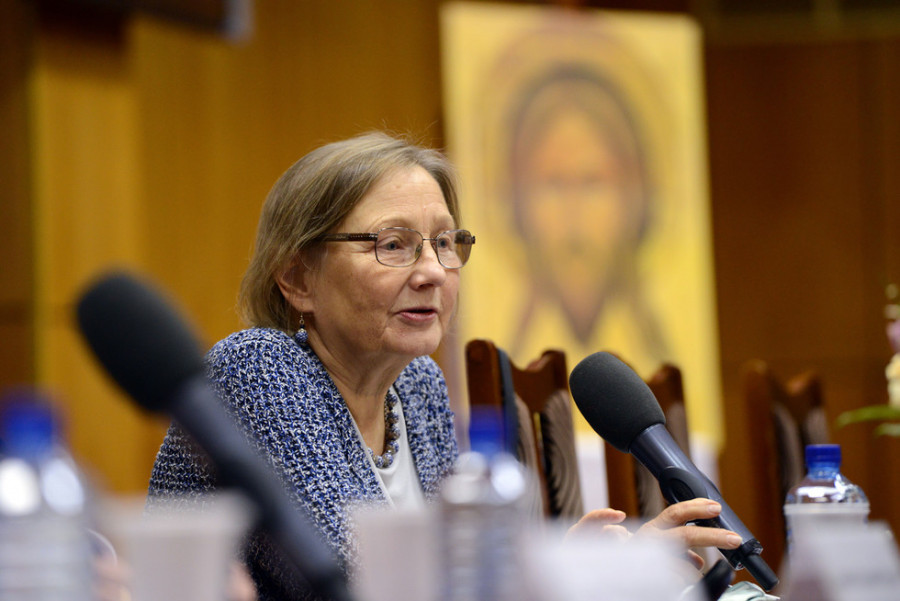
“We are glad that in our Institute, as well in our brotherhoods, there is room for friendship,” said Fr Georgy Kochetkov, in his summary speech, which concluded the festive day. “Although, by its nature, friendship certainly remains a rarity, yet friendliness is always present where there is brotherhood as a gift of the Lord’s love. Being a brotherhood of Christ and not losing the spirit of friendship – regardless of whatever incursions of aggression by the evil of this world – is of paramount importance. And I thank God that in our time we have the possibility to be Christians and to live in commitment to the Church. I would like to see our Institute always be filled with the spirit of this love – both friendly and brotherly – which in its fullness is brought to us by Christ and exceeds the four Greek notions of love.”